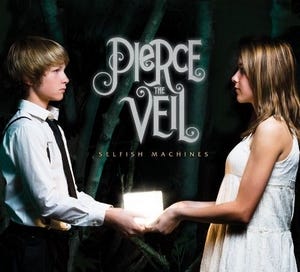brief note — thank you to chesca and jay for editing me. all my love <3
there are few other dramatic derangements that come close to being a teenager in love for the first time. this might be attributed to its ability to strip life to its barest form, where everything becomes narrowed down to the hunger to feel the gaze of the beloved upon you. for some reason, the innocence of that single-minded intensity is hard to take seriously, and harder to endure. when a relationship is described as ‘teenage’ or ‘juvenile’, it’s never a compliment. it’s a dismissal which belittles the myopia of youth while praising some nebulous but aspirational vision of maturity, which will be seized upon as imperfect someday down the line. the depressing sterility of being a mature adult will, for the rest of time, pale in comparison to the vitality implicated in the wider cultural valorization of youth.
i can’t help but feel that the hopeless contradictions of categorisations like these are an undermining of love itself, because sometimes the most honest forms of love are kind of teenage. i’ve never been proud to find myself feeling 15 again as i wait for a text back from the object of my affection with enough anxiety to make you think the fate of the world hung in the balance, but the intensity of the feeling is everything. i think it’s good to feel a little gouged out by desire, to nurse the pit in your stomach and the shaking in your hands. and yes, while it’s never any fun to be around couples who seem to be in the throes of their desire, i always find that my resentment is for not being included. i wish, so often, to be enfolded into such delirious ecstasy.
Pierce the Veil’s sophomore album, 2010’s Selfish Machines, is an ode to the melodrama of teenage love. between Vic Fuentes’ high vocal register, the fiery flair of the guitars on tracks like Besitos, and the lyrics which make pointed reference to movies like Fast Times at Ridgemont High – retitled Fast Times at Clairemont High for Fuentes’ alma mater – Selfish Machines is a mangled homage to the feeling of being pried open by passion for the first time. it’s fitting that i, somewhat embarrassingly, listened to a lot of Pierce the Veil in the time during and after i was with my first girlfriend, with whom i received enough human warmth and care to subsist on. not enough to be nourished, but good enough for subsistence. for a while i didn’t have to live on my imagination, and that’s all you can ask for sometimes. after we broke up i kept listening to this album, possibly even more than i did in the time we were together. upon reflection, it’s probably because the album’s approach to desire is always situated in the gap which sustains it. to plainly quote Anne Carson: “If we follow the trajectory of eros we consistently find it tracing out this same route: it moves out from the lover toward the beloved, then ricochets back to the lover himself and the hole in him, unnoticed before. Who is the subject of most love poems? Not the beloved. It is that hole.” there’s nothing sexier than never really getting what you want, or so i keep trying to convince myself.
across Selfish Machines, it’s the hole which recurs. the hole being the impossibility of ever truly becoming one with the deliriously desired, as in: “If I die, you die too.” (Fast Times at Clairemont High), or the fiery car wreck which kills the lovers as Fuentes delivers the final command, “Kiss me while I drive.” (I Don’t Care If You’re Contagious). only in this grand fantasy of near-simultaneous death can true union be successfully fantasised about. this motif is returned to again and again. one might think of the lovers in Romeo and Juliet, who are perhaps the mould which shapes the solemn promise intoned in “If I die, you die too.” there’s no logic to any of this. Fuentes knows this; at one point on Fast Times, he turns to the audience to shruggingly admit: “So melodramatic / but it turns me on”, followed immediately by, “I close my eyes, it feels just like a movie”. if there is even but a shred of logic, it’s entirely motivated by the desire to cultivate sensation, such as in the blind submission evident in the single-minded simplicity of ‘but it turns me on’. that’s good enough to willingly go under, slip under a blindfold, and animate the vocabulary of desire pushed into you by the entirely imaginative — and for that reason totally erotic — lexicon of the moving image. it’s everything that never happened to you but still lives real and breathing in your memory. or, as Vic Fuentes so pointedly declares on Disasterology: “This is my imagination.”
for this reason, i think the mode of this album is best described via the technique of montage, where each image bleeds into the next so porously and without inhibition such that melodrama can be successfully created, and sustained. the image of the pitiful, blood-soaked “Hold my heart, it’s beating for you anyway” on Caraphernelia is sutured to the agonising “I can barely say your name / So I’ll try to write it, and fill the pen with blood from the sink” on the shining beacon of melodramatic anthems, Bulletproof Love. this motif continues on Disasterology, which asks, over and over again, “Can we create something beautiful and destroy it?” eventually reaching its peak on Million Dollar Houses, which folds into its destructive climax with the singsong: “permanently yours […] it’s times like this run up my wrist, she hates all of the guts and blood”. the sheer excess of it all is what i’m getting at, the number of times that the ripped-out fibres of a beating heart or the open highways of wrists are invoked, all these images collapsing into each other repeatedly through the ecstasy of desire which can only function in the mode of excess, in a desperate attempt to endure the depth of the hole.
it’s also no coincidence that images of self-harm proliferate across this album – and the band’s discography, for that matter – but what’s stuck with me most is how the band refuses to detach themselves from the intensity of such physical, otherwise ‘cringeworthy’1 confessionals. instead, their sonic stylisations, from Fuentes’ cut-off screams at the end of Bulletproof Love to the murky sounds of drowned lovers which conclude The Sky Under the Sea, insist on preserving the intensity and all the cliches of that first-time feeling in full force, without shame. in my years of listening to them, this montage of self-mutilation emerges as a result of the inability to hold so much feeling in one body. being in love — and loved— for the first time is no small feat. especially if you’ve ever believed you didn’t deserve it, or you’re a little too in love with the distance between you and the other person. this dizzying recalibration of a reality you’ve been so used to fabricating for yourself can be enough to lead you to the forcible openings carved out in the “waste of a perfectly good clean wrist” on Disasterology, or “running to the bathroom” with bile in your mouth in The Boy Who Could Fly. there’s just no easy way to bear something as big as love, when it actually happens.

so yes, in the aftermath of my first terrible breakup, i listened to Selfish Machines a lot, because that’s exactly what i felt like had been revealed of me. the curtain rising up, the music swelling, the disembodied announcement: “Ladies and gentlemen, I introduce the Selfish Machine” (The Sky Under the Sea). i remember feeling ungainly and stupid for somehow having been able to ask for far too much more than anyone was willing to give me when i thought i’d done a good job minimising myself. just being aware of your own preoccupation with love isn’t good enough to eradicate it.
it’s only the next line that introduces some relief, in a terrible sort of way, but relief nonetheless. as the instrumental breakdown rushes in, the listener can barely hear Fuentes growl out: “Do you think you’re the only one afraid of this machine?” for an album that’s been aimed outwards so entirely, chasing the object of its affections, this is one of the most singularly intense moments – signalling the inward turn which occurs fully on the following album, Collide with the Sky – where it’s enough to stop and say, ‘oh god, has it been me the whole time?’. there’s an awful sort of control in that, that i still find reassuring now, almost 10 years from the first time i heard it, which speaks to the porosity of time and the potency of melodrama, in that there are some things which will just never fade. it feels silly to not have been able to recover fully from something that happened so long ago, but Selfish Machines works for me as a talisman that preserves and wards off shame simultaneously, refusing to abandon its listener to the presumed singularity of their own destructive fantasies.
and i don’t necessarily believe this i’m just saying words recreationally





